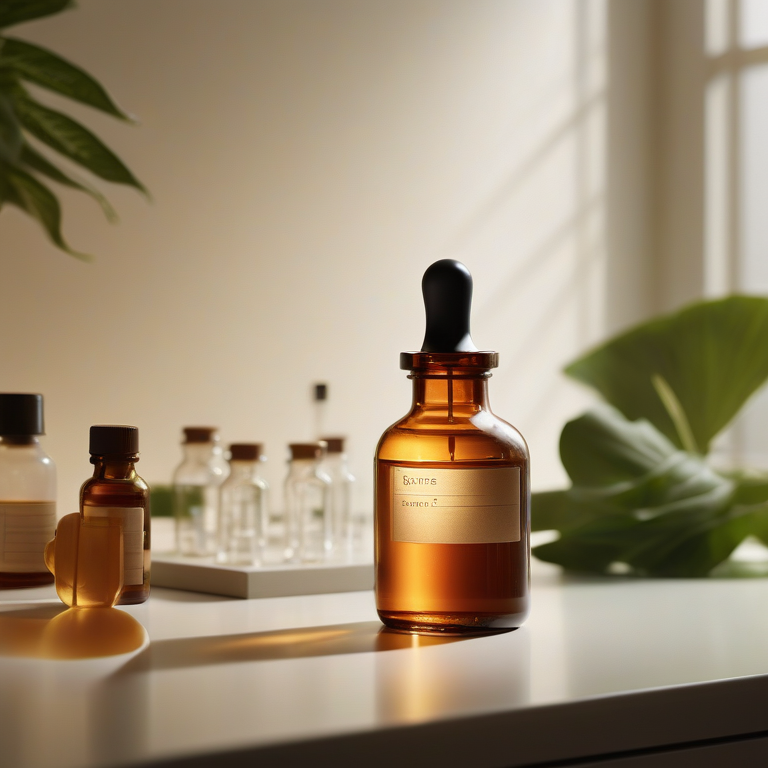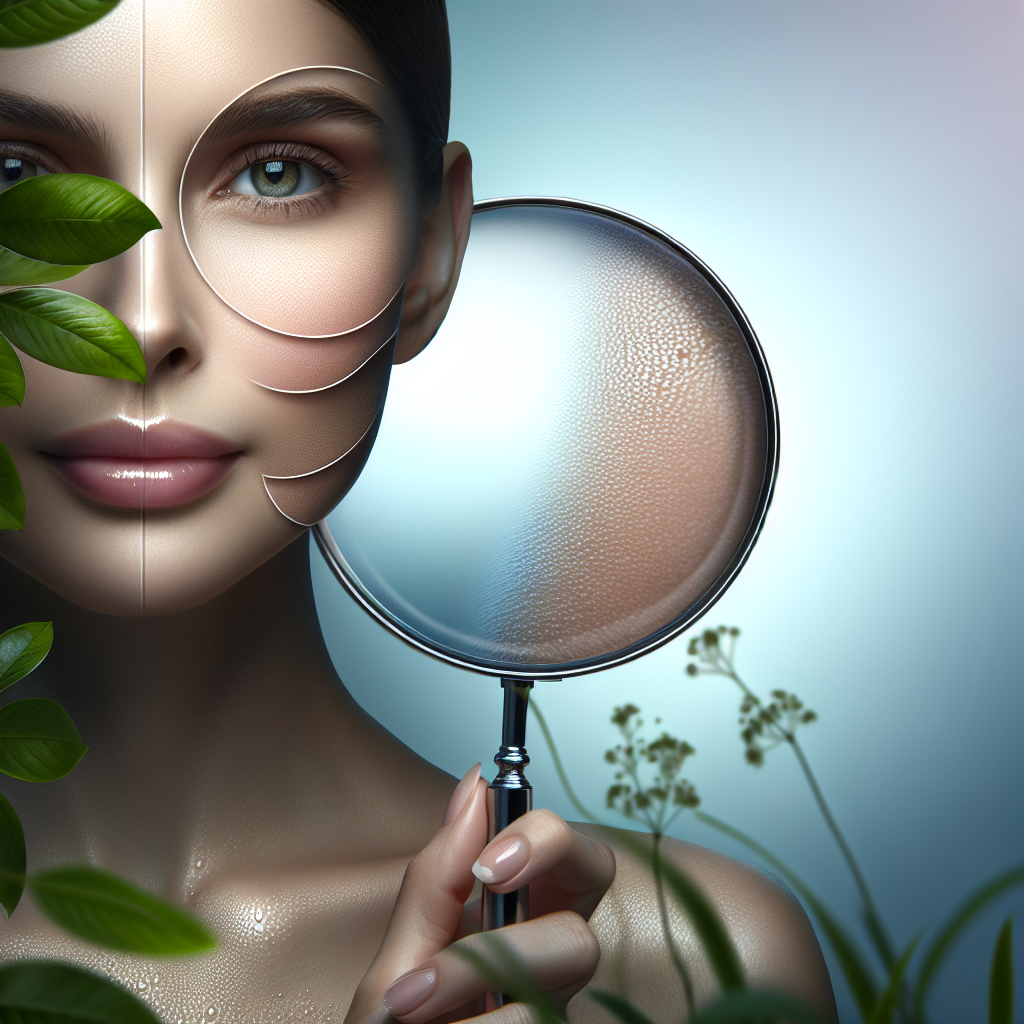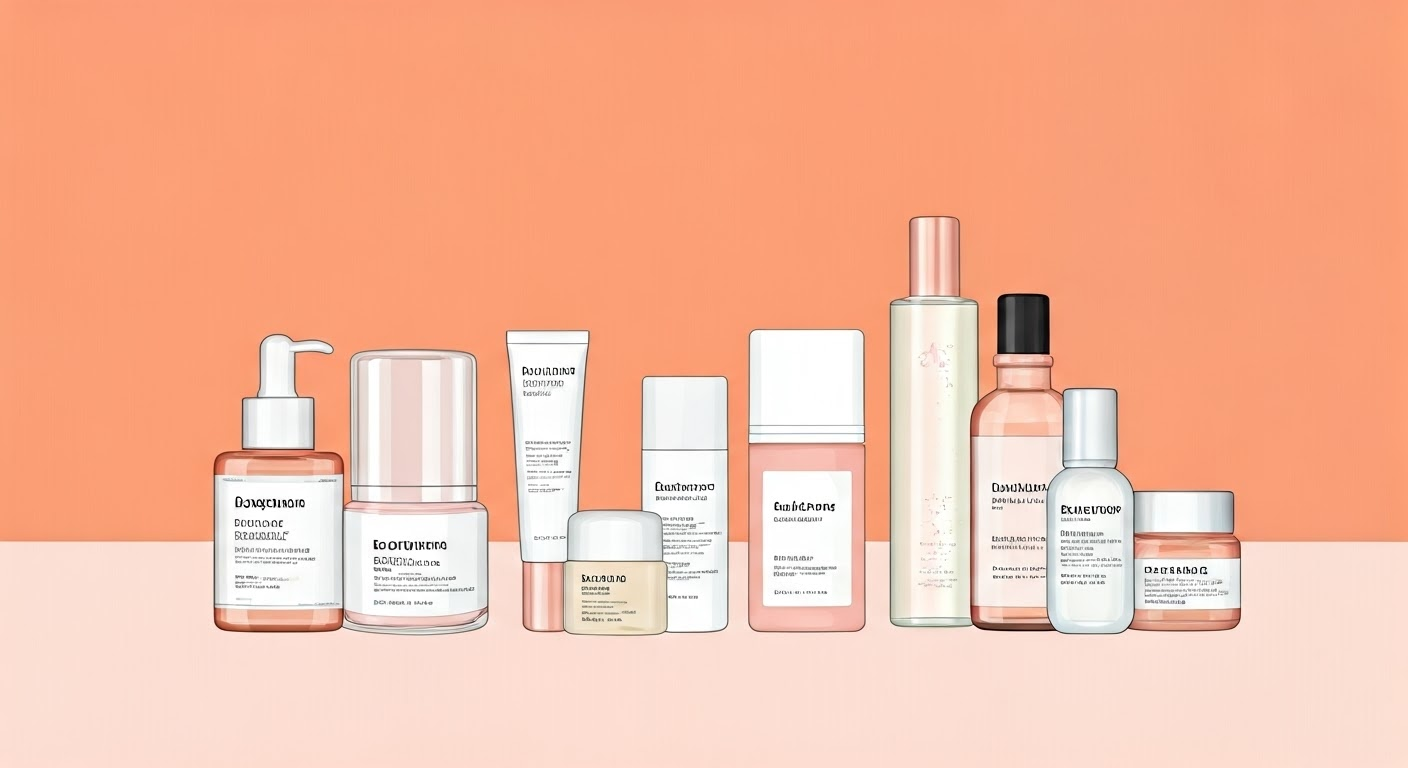Betaine in Skin Care: Unlocking the Benefits


Key Highlights
Betaine, a tweaked version of an amino acid, is a standout component in skincare that brings several perks for those with sensitive skin, fine lines, and who are seeking better hydration. By working as a humectant, it draws moisture to the skin and keeps it there, leading to enhanced hydration and keeping your skin moist. For folks dealing with irritated or easily upset skin types, betaine's calming effects help lessen inflammation and redness. On top of these benefits, its anti-aging properties stand out by diminishing the look of wrinkles and fine lines which contributes to a younger-looking and firmer face. Found naturally in various skincare products; incorporating betaine into your daily routine can really make a difference for achieving great results.
Introduction
People who care for their skin seek new ways to improve it. Betaine, also called trimethylglycine, is trending. It's an amino acid that benefits the skin and fits any skincare routine well. Betaine is not artificial; our bodies naturally produce it and has important roles. It protects cells from harsh conditions by drawing water to the skin, enhancing hydration and locking in moisture. Betaine is popular for soothing sensitive skin. If your skin easily gets red or irritated, betaine can help calm it with its anti-inflammatory properties, reducing signs of aging like wrinkles for a smoother complexion. If dry patches or early signs of aging bother you, adding betaine to your skincare routine could be a game-changer.
Understanding Betaine and Its Role in Skincare

Betaine isn't just any skincare ingredient; it's a real game-changer for your skin. Known mainly for its humectant properties, betaine draws water into the skin and keeps it there. This is super helpful if you've got dry or dehydrated skin because it helps get back that natural moisture balance and stops water from escaping.
But that's not all betaine does. It also plays a big part in keeping the skin barrier strong. The skin barrier is like your body's shield against bad stuff from the outside world, helping to keep moisture in and protect your skin from harm. Betaine makes this barrier even stronger, which means less water loss and more moisture staying right where you want it - leading to soft, well-hydrated skin.
What is Betaine in Skin Care?
Betaine, which you might also hear called trimethylglycine, is a real game-changer in skincare. It's like a magnet for moisture because it pulls water into the skin and keeps it there. This is super helpful if your skin feels dry or thirsty.
On top of being great at locking in moisture, betaine works inside your cells to make sure they have just the right amount of fluid. This helps keep everything balanced and ensures your skin stays healthy and happy.
The folks who check out ingredients for safety in cosmetics have given betaine the thumbs up. So, you'll find this handy ingredient in lots of products meant to take care of your skin - from serums that give an extra boost to moisturizers that keep things soft all day long.
With its ability to both attract hydration and balance cell fluids as an osmolyte, betaine has become quite popular among those making personal care items. Whether you're looking into adding more hydration or ensuring better health for your skin overall, including this component could be beneficial.
How Betaine Benefits the Skin at a Cellular Level
 Betaine is like a superhero for your skin, working its magic right inside the cells. By acting as an osmolyte, it keeps everything balanced in there so that our skin cells can stay hydrated and work properly. This hydration part is super important because our skin needs to hold onto moisture to be healthy.
Betaine is like a superhero for your skin, working its magic right inside the cells. By acting as an osmolyte, it keeps everything balanced in there so that our skin cells can stay hydrated and work properly. This hydration part is super important because our skin needs to hold onto moisture to be healthy.
On top of this, betaine has another trick up its sleeve - it makes tight junctions between our skin cells stronger. These tight junctions are basically barriers that keep water in and bad stuff out. With betaine's help, these barriers get better at their job, which means less water loss and more protection against things that could harm our skin.
But wait, there's more! Betaine also calms down inflammation and soothes irritated skin. So if you've got sensitive or easily upset skin, betaine could really make a difference by easing irritation and making your complexion look healthier overall.
The Multi-Faceted Benefits of Betaine for Skin Health

Betaine is a real game-changer in skincare, offering lots of perks for keeping skin healthy. At the heart of its benefits, it's great at hydrating your skin. Acting as a humectant, betaine pulls water into the skin and keeps it there. This means if you've got dry or thirsty skin, betaine can help get your moisture levels back on track.
On top of that, for those dealing with irritated skin or redness, betaine comes to the rescue by soothing and calming things down. Its anti-inflammatory powers work wonders in reducing irritation and making sure your complexion stays even.
And when it comes to looking youthful, betaine has got you covered too. It plays a big role in lessening fine lines and wrinkles which helps keep your face looking smooth and firm - all thanks to its hydrating power combined with easing inflammation.
Enhancing Skin's Hydration and Moisture Retention

Betaine is a standout ingredient that really boosts how well your skin holds onto water and stays moisturized. Thanks to its humectant properties, it pulls in water and keeps it there, making sure your skin stays hydrated and balanced when it comes to moisture. Here's what betaine does for keeping your skin moist:
- By pulling in water towards the skin, it ramps up hydration.
- It plays a big role in keeping the natural balance of moisture on point.
- Stops water loss so your face remains more hydrated over time.
- Makes sure the skin can hold onto moisture better which leaves you with soft and full-looking skin.
Adding betaine into what you do for skincare means you'll see a real boost in both hydration and how well your moisture sticks around, giving you healthier looking glowy-skin.
Reducing Inflammation and Soothing Sensitive Skin
Betaine is really good for your skin, especially if it's sensitive or gets red and irritated easily. Here's what betaine does:
- It fights off inflammation by stopping those bad inflammatory signals in your skin.
- If your skin feels upset, betaine helps calm it down and takes away the redness and that annoying feeling.
- Betaine also makes sure your skin doesn't react too much to things that usually bother it.
- Plus, it strengthens the defense of your skin so harmful stuff from outside can't cause as much trouble.
Adding betaine to how you take care of your skin means less irritation and a happier face overall.
Anti-Aging Effects of Betaine: From Fine Lines to Firmness

Betaine is a real game-changer for anyone wanting to keep their skin looking young and fight off those fine lines. Let's dive into how betaine does its magic:
- By working on reducing wrinkles and fine lines, betaine makes your skin look smoother and younger.
- With its antioxidant powers, it shields your skin from harmful free radicals and the damage caused by our environment that ages us faster.
- Betaine also steps up the game in making our skin firmer and more elastic, giving you that lifted look everyone loves.
- Plus, it improves the texture of your skin, leaving you with a complexion that’s not just youthful but glowing.
Adding betaine to your skincare routine can really help turn back time on aging signs like wrinkles or less-than-perfect skin texture, letting you enjoy fresher-looking skincare results.
Incorporating Betaine into Your Skincare Routine
Adding betaine to your skincare routine is an easy and effective step towards better skin health. You can find betaine in many skincare products, making it a breeze for those who love taking care of their skin. Here's how you can start using betaine:
- Search for serums, moisturizers, and masks that list betaine as an ingredient.
- Make sure to check the product's ingredients list to see if it includes betaine.
- Follow the instructions on how to use these products correctly within your usual skincare steps.
- It might be a good idea to slowly introduce products with betaine into your regimen so you can see how your skin reacts.
By incorporating products with betaine into your daily skincare habits, you're tapping into this key component's advantages for achieving healthier-looking and glowing skin.
Identifying Products with Betaine
To start using betaine in your skincare routine, the first thing to do is look for it on the labels of products. Here's where you might find betaine:
- In hair care items like shampoos and conditioners, because it helps keep your hair moisturized and healthy.
- Within sheet masks that aim to hydrate and calm your skin.
- Inside night serums that work overnight to nourish and fix up your skin.
When out shopping for skincare goods, always peek at what's inside by reading the ingredient list. This way, you can spot which ones have betaine. Doing this lets you pick products specifically beneficial for what your skin needs thanks to this effective component.
Tips for Maximizing the Benefits of Betaine in Skincare
To really get the most out of betaine for your skin, here are some handy hints:
- Before diving in, it's smart to chat with a dermatology expert or someone who knows skincare inside and out. They can help you figure out how best to add betaine into your skincare routine.
- When picking products for your skin, aim for those that pack enough betaine to actually do you good.
- With products that have betaine in them, always go with pure or distilled water when applying. This way, you boost its power and avoid watering it down.
Stick to these suggestions if you want to fully enjoy what betaine has up its sleeve for keeping your skin looking great.
Safety and Side Effects: What You Need to Know About Betaine
When you think about using betaine in skincare, it's usually safe for all. However, as with any skincare product, be aware of possible side effects and consult a doctor if concerned or have specific skin problems.
Betaine is a natural substance that appears in many foods. This makes it a suitable option for those with delicate skin or anyone seeking a gentle addition to their daily skincare regimen. However, reactions may vary individually, so consulting a healthcare provider before testing new products on your skin is wise.
Betaine is safe for most people. Sensitive skin? Watch out. Irritation, redness, itching, or rash may occur. If so, stop use and consult a doctor. Allergic to betaine? Read labels. Patch test new products with betaine to reduce side effects. Test on a small skin area first.
Guidelines for Safe Use of Betaine in Skincare

To make sure betaine is safe in your skincare routine, keep these tips in mind:
- Start with a patch test: Before you slather that betaine-laden product all over yourself, try it on a small skin spot first. This way, you can see if your skin says "no thanks" to it.
- Talk to a pro: Got any worries about using betaine or dealing with some skin issues? It's best to chat with someone who knows their stuff before mixing it into your skincare game.
- Stick to the script: Don't just wing it; make sure you read and do what the product tells you. That means paying attention to how often you should use it and any heads-ups given.
- Less is more: Betaine's cool and all but don't go overboard. Too much of a good thing might lead to annoyed skin or other not-so-fun reactions. Use products as they're meant to be used - sparingly.
By keeping these points in check, adding betaine into your skincare mix can be smooth sailing, letting its hydrating perks shine without inviting irritation along for the ride.
Conclusion
To wrap things up, getting to know how betaine works can really do wonders for keeping your skin healthy and lively. It's great at making sure your skin stays moist, calming down redness and swelling, and even helps keep wrinkles at bay. Betaine is like a one-stop-shop for feeding your skin what it needs. If you use betaine smartly in your daily skincare routine while also watching out for any not-so-great reactions, you'll be able to make the most of what it has to offer. Whether you're dealing with dry patches, breakouts or just want to give your skin some extra love so it looks its best, turning to betaine could be a game-changer in helping you get that glowy and vibrant look. So go ahead—let betaine transform the way you care for your skin by taking it up a notch towards more shine and youthfulness.
Frequently Asked Questions
Is Betaine in Skincare Safe?
- Generally, betaine is seen as safe to use in skincare products.
- An expert panel from the Cosmetic Ingredient Review has looked into it and thinks it's okay as long as it doesn't go over 8.7% concentration.
- But, if you're worried or have allergies, talking to a dermatology provider is always a smart move.
Can Betaine be Used on All Skin Types?
Betaine is great for every type of skin out there. For those with sensitive skin, it's a real game-changer because it not only moisturizes but also calms any irritation. With dry skin, betaine brings in the hydration that's desperately needed. And for people dealing with oily skin, it helps by balancing out how much oil the skin makes.
Is Betaine a Natural Ingredient?
- Indeed, betaine comes from natural stuff like sugar beet and wheat germ.
- With its roots in nature, it's perfect for anyone looking to keep their beauty routine clean. It not only moisturizes but also calms the skin down.
What Not To Mix With Betaine?
- Mixing betaine with stuff like glycolic acid and vitamin C isn't usually a good idea because they might cancel each other out.
- On top of that, it's wise to steer clear of products that have sulfates and parabens in them since they could irritate your skin.
- When thinking about what you use on your skin, always chat with someone who knows a lot about dermatology to make sure everything works well together.
How Long Does It Take to See Results from Using Betaine?
Depending on your skin type and what issues you're dealing with, the period it takes to notice changes after adding betaine to your skincare routine can differ.
- But by sticking with it consistently, improvements in how smooth your skin feels, a noticeable healthy shine, and better moisture levels are usually seen within weeks or months.
Can Betaine Help with Specific Skin Concerns, Such as Dryness or Acne?
Betaine is really good for tackling certain skin issues, especially if you're dealing with dryness or acne. It works by adding moisture and hydration to dry skin, which helps get the moisture balance just right. For those struggling with acne, betaine's ability to calm inflammation can make a big difference. It soothes the skin and cuts down on redness and swelling.




